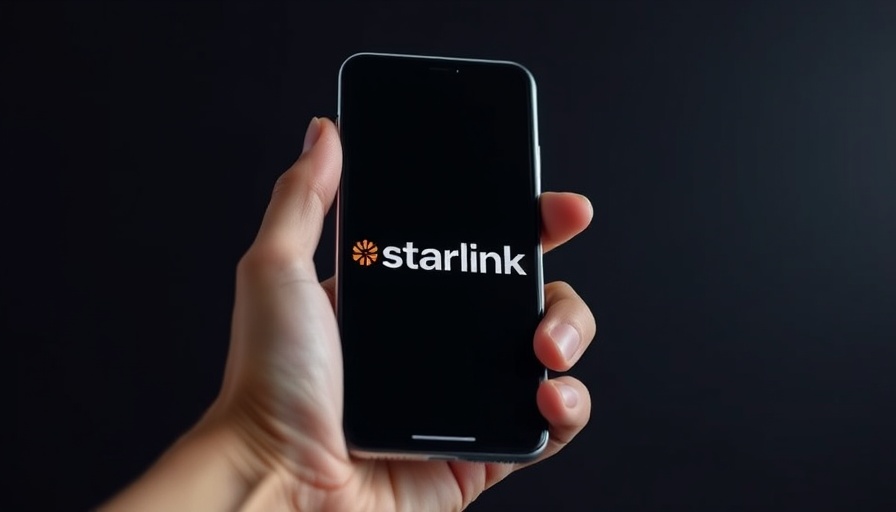
South Africa's Changing Landscape for Starlink
In a significant shift, the South African government is reforming its empowerment laws to facilitate the entry of Elon Musk’s Starlink, a satellite internet service provider. This move highlights South Africa's commitment to enhancing digital connectivity, especially in rural and underserved regions. By easing regulations that previously hampered foreign investment, the government aims to boost access to reliable internet services, fostering economic growth and innovation in technology.
The Backbone of Economic Transformation
While many view the facilitation of Starlink as an immediate technological advancement, it also represents a broader trend in economic empowerment for South Africa. The previously stringent laws surrounding foreign investments were designed to protect local businesses and promote social equity. However, as global technological advancements accelerate, the government recognizes that a balance must be struck between protecting local enterprises and fostering innovation. By inviting a company like Starlink, South Africa could improve its digital landscape, but the challenge lies in ensuring that local businesses can also thrive amidst international competition.
Bridging the Digital Divide
Starlink has the potential to bridge the digital divide in South Africa, where many areas still rely on outdated communication infrastructure. Internet access is no longer a luxury; it’s essential for modern education, healthcare, and business. The availability of high-speed internet can empower local entrepreneurs and small businesses by providing them access to global markets. This is especially crucial in a nation with a vibrant startup ecosystem, encouraging innovation and economic resilience.
Lessons from Global Counterparts
South Africa isn’t alone in re-evaluating its policies for the digital economy. Other nations have successfully integrated new technologies while ensuring local participation. For instance, countries like Kenya have embraced fintech innovation alongside regulatory frameworks that promote local entrepreneurship. Such models can serve as valuable references for South Africa as it navigates the complexities of integrating Starlink into its economic landscape.
Future Predictions: The Road Ahead
Looking forward, it's crucial for South Africa to ensure that the introduction of Starlink translates into sustainable growth. Local training programs could be established to equip citizens with the skills needed to leverage improved internet access effectively. Moreover, maintaining regulations that protect local businesses while fostering an environment ripe for competition will be pivotal. The inclusion of South African businesses in Starlink's supply chain could ensure that the benefits of this initiative are broadly shared.
Conclusion: Embracing Change in a Digital Era
The changes in South Africa's empowerment laws are not merely about inviting a foreign company—it's about reshaping the future. As digital transformation continues to evolve, countries worldwide are recognizing that inclusion and innovation go hand in hand. Starlink’s entry into South Africa could mark the beginning of a new chapter in its digital story, unlocking potential for businesses and individuals alike.
 Add Row
Add Row  Add
Add 



Write A Comment